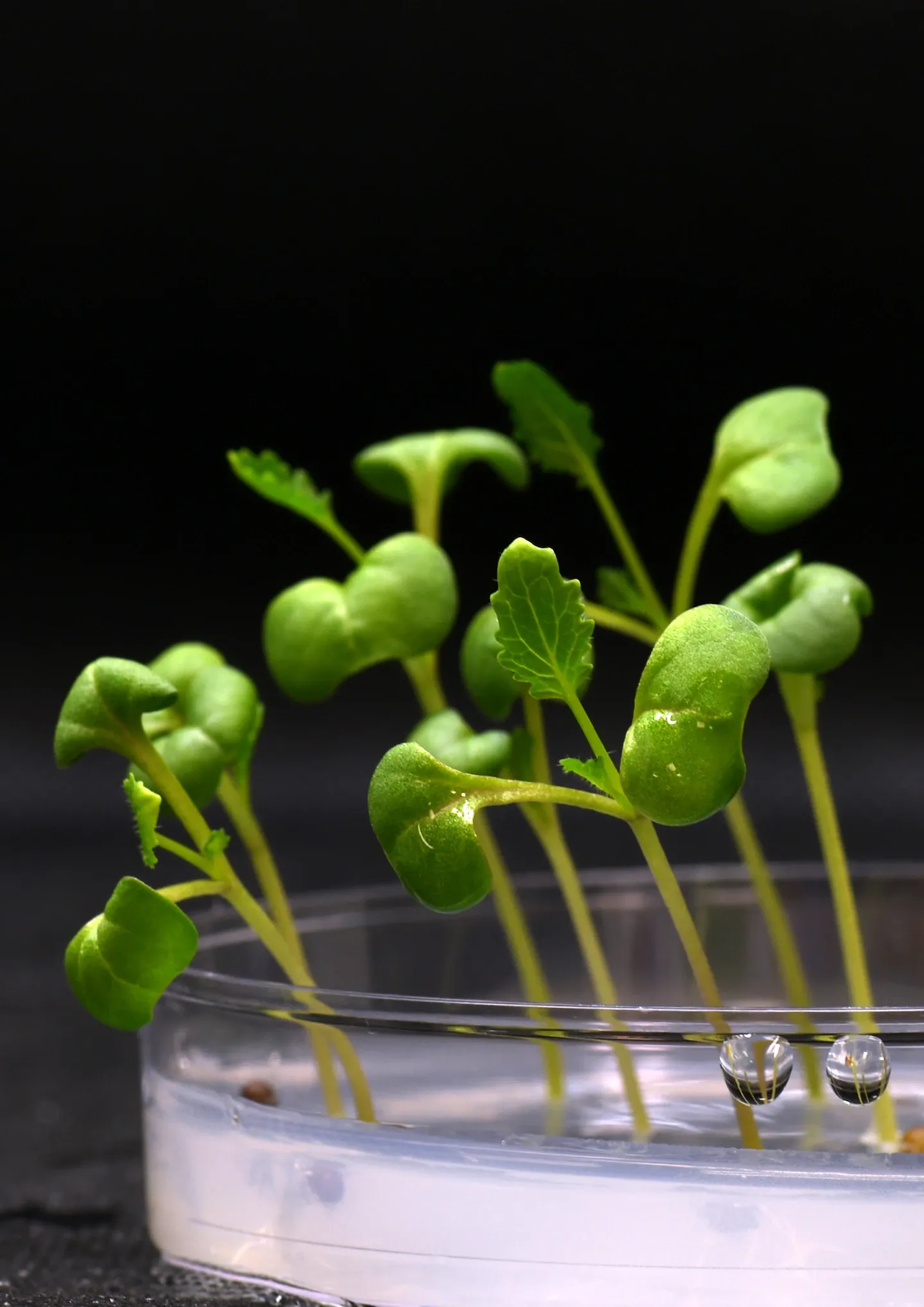Can food crops grow in the dark? Scientists are working out how.

Experiments suggest that it might become possible to nourish plants without photosynthesis—a tool that could one day help feed astronauts and a crowded planet.
Science fiction stories have imagined future people living in underground cities on Mars, in hollowed-out asteroids, and in free-floating space stations far from the sun. But if humans are ever to survive in any of those harsh and alien environments, they will need ways to grow food using limited resources—and photosynthesis, the wildly successful yet energy-inefficient process by which plants turn sunlight into sugar, might not cut it.
Now, some scientists are wondering whether it’s possible to produce food more efficiently by skipping photosynthesis altogether, and growing plants in the dark.
The idea sounds as science fictional as cities on Mars. But a team of researchers has taken a first step toward realizing it with a study published in Nature Food in June. The research shows it is possible to grow algae, edible yeast, and mushroom-producing fungi in the dark by nourishing them with a carbon-based compound called acetate that didn’t originate from plants, but instead was manufactured using solar electricity. The scientists are hopeful that this method, a type of “artificial photosynthesis,” could unlock new ways to produce food using less physical space and energy than traditional agriculture—including, perhaps, crops that can grow in the dark.
While other experts are skeptical that it will ever be possible to redesign plant biology so radically, they are excited by the technology the researchers have invented and the team’s out-of-the-box idea about how to make food production more efficient.
“We have to figure out ways to grow plants more efficiently,” says study co-author Feng Jiao, a professor of chemical and bio-molecular engineering at the University of Delaware. “Which [solution] is best? I think the beauty of science is that we explore all the possibilities.”
More efficient than nature
With the exception of a few extreme environments such as deep-sea hot springs—which are sustained by the chemical energy of hydrogen sulfide bubbling out of cracks in the seafloor—all life on Earth is fueled by the sun. Even apex predators like tigers and sharks are part of complex food webs that trace back to plants, and in the oceans, tiny green algae. These so-called primary producers have a biological superpower: the ability to create organic carbon from carbon dioxide via photosynthesis, a biochemical process powered by sunlight.
)
)
)



)
)
)
)
)
)
)
)
)
)
)
)
)
)
)
)
)
)
)
)
)
)
)
)
)
)
)
)
)
)
)
)
)
)
)
)
)
)
)